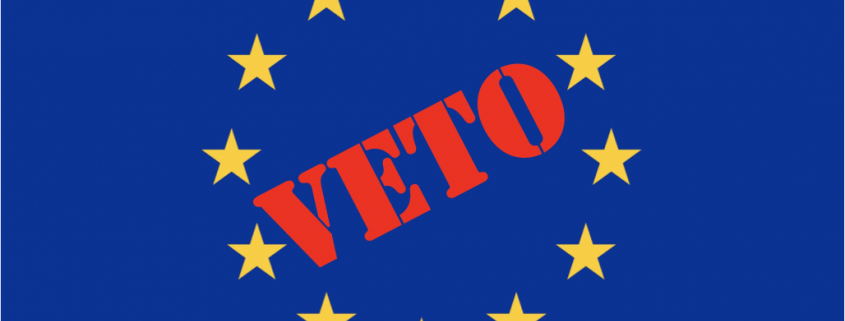Rule of Law Mechanism – The EU at a crossroads
Now it has happened again. The EU is incapable of acting because of voting problems in the Council in order to release much-needed Corona aid.
A minority of two member states – Hungary and Poland – are using their voting weight to prevent the enforcement of the rule of law on their territory. This may come as a surprise at first, because the rule of law and the fight against corruption should actually be a matter of course. In purely formal terms, the governments in Warsaw and Budapest are right. The lever at which the two countries are using their veto power is the forthcoming preparation of the long-term budget. And this is subject to the principle of unanimity in decisions in the EU Council and co-determination between the European Parliament and the Council.
But what is political behind it?
In the summer of this year, after much hesitation and hesitation, the Community
to counteract policies and actions contrary to the values of the Community with financial resources in a Member State. In other words, those countries that are no longer willing to meet the conditions already required by the accession procedure and the Copenhagen criteria will also have to expect financial sanctions in the future.
Conversely, Hungary and Poland are trying, by means of the rights formally due to them, to increase the pressure on Brussels to shape common policies in order to persuade the other Member States to back down. In this respect, there is currently a real slap and collapse at the head of the European Union. And under the given balance of power, it is not certain which of the two sides will ultimately prevail or what consequences this could have for the EU as such.
What does the dispute over the structural integrity of the EU say?
The current dispute manifests a long-simmering structural birth defect of the EU. This has repeatedly had fatal consequences for the mechanisms of power-sharing at the highest level of the European union of states.
The Member States are indeed the real founders or ‘fathers’ of the Community. As such, they have, from the outset, assumed a leading position and laid it down in the Treaty of Rome. At the same time, it was stipulated that once all countries have acquired the position of full member, they will be given the same position and rank as all the others. From the largest to the smallest member state. In certain policy areas, therefore, in fact, every national government has been given a right of veto.
What are the consequences for all of us?
All this may have been comprehensible with a few members of the community in the founding period and in the case of hardly significant discrepancies. In the modern age, however, with all its global challenges and the compulsion to make wise, coordinated decisions in the shortest possible time, this regulation seems more or less antiquated. It often seems almost anachronistic. For example, the EU still lacks a sustainable, Community refugee policy. And in competition with China and the US, Europeans are also in danger of being sidelined economically because they do not speak with one voice.
In this respect, the current votes are no longer just about political power games. The consequences of a lack of capacity to act affect us all. The citizens of Europe are called upon to influence their governments and to ask themselves the question: how much are we prepared to do for Community added value? Futura Fabrica offers a platform for ideas to give the EU back its clout.



Once again, the ability to act or not to act in the current situation is playing into the hands of the euro-sceptics. … There is a lack of politicians in Brussels (and not only there) who can embody and transport European visions as characters, and convey them to “the common people”. But they don’t grow on trees, they earn their merits in the parliaments of the member states. The sometimes frightening shift to the right in some EU countries makes life difficult for them – in terms of the challenges they face when working on the European stage. The frustration about such a development then increases – and the “successes” are even harder to communicate…. Once there are so few and when there are, they are small and often hardly touch the citizen. This is part of a disastrous downward spiral in which the great European idea finds itself. I would be more comfortable if Europe could come together as one – let’s say – “bloc”, speaking with one voice both economically and in matters such as foreign and security policy and environmental protection. Then people will listen again and Europe will be taken seriously. It is simply a complicated interplay between the external and internal perception of European policy and its effects.
Mr Iral has described the situation here in a way that I would describe succinctly and at the same time shed light on the background to the misery in Europe. Of course there are more “construction sites” in EU countries, the possibility of legal blocking of European politics BY Europeans should, in my opinion, be a thing of the past.